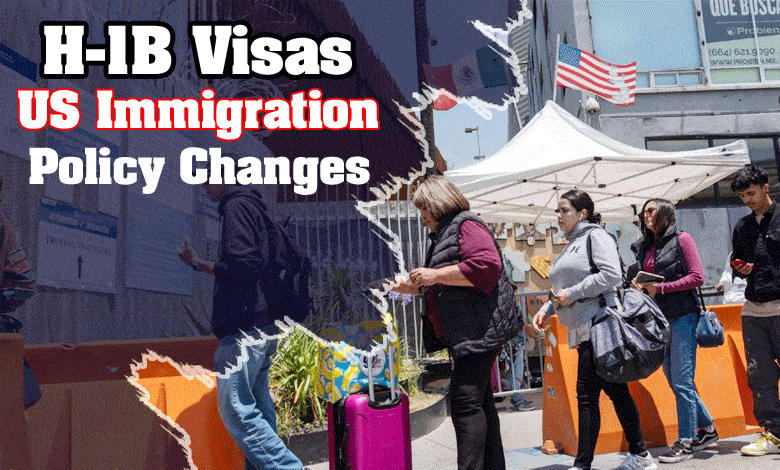Sharp Decline in H-1B Visas for Indian IT Companies Amid US Immigration Policy Changes
Some experts believe that restricting access to H-1B visas could hurt U.S. innovation and competitiveness in the global technology market.

Washington: The number of H-1B visas issued for employment in the United States has seen a dramatic decline, particularly impacting foreign specialists, many of whom come from India. These visas are essential for highly skilled foreign workers to work in specialized fields such as IT, engineering, and healthcare. However, under stricter immigration policies, particularly since the Trump administration, the approval rate for these visas has dropped significantly. Companies are required to obtain prior approval from the U.S. government to apply for H-1B visas, and these regulations have become increasingly stringent.
Also Read: India Faces Criticism from US for Delays in Deportation Process
Key Points on H-1B Visa Trends:
- Declining H-1B Visa Numbers:
- In 2015, Indian IT companies received 14,792 H-1B visas, but by 2024, this number has fallen drastically to just 7,299.
- This sharp decline reflects broader changes in the U.S. immigration landscape, including an overall reduction in H-1B approvals.
- Impact on Indian IT Companies:
- The National Foundation for American Policy (NFAP) reports that, in 2024, only 5.2% of the approved H-1B visas were granted to Indian companies, a significant drop from previous years.
- Indian IT firms, which depend heavily on the H-1B program to bring skilled workers to the U.S., are now facing tougher challenges to secure these essential work permits.
- Rising Rejection Rates:
- Since Donald Trump assumed office, the rejection rate for H-1B visa applications has increased.
- U.S. policies have become more restrictive, with heightened scrutiny on visa applications and more rigorous evaluation criteria for both the companies and applicants.
- Concerns for the Indian Workforce:
- Indian nationals make up a large portion of the H-1B visa holders, especially in the technology sector. The reduction in visas is expected to have a major impact on the ability of Indian workers to access employment opportunities in the U.S.
- The tightening visa regulations are contributing to growing uncertainty among Indian professionals seeking career opportunities in the U.S.
- Future Outlook:
- Immigration experts predict that the H-1B visa process will become even more restrictive in the future, potentially leading to further reductions in the number of approvals.
- Additionally, there are concerns about an increase in visa denials and delays as a result of continued policy changes aimed at reducing foreign worker inflow.
- Impact on US Economy:
- The H-1B visa program has traditionally been a vital avenue for U.S. companies to hire highly skilled professionals, especially in the technology sector. However, with the recent reduction in the number of visas issued, industries that rely heavily on foreign talent may face challenges, potentially impacting their growth and innovation.
Some experts believe that restricting access to H-1B visas could hurt U.S. innovation and competitiveness in the global technology market.
- The H-1B visa program has traditionally been a vital avenue for U.S. companies to hire highly skilled professionals, especially in the technology sector. However, with the recent reduction in the number of visas issued, industries that rely heavily on foreign talent may face challenges, potentially impacting their growth and innovation.
Conclusion:
The steep decline in H-1B visa approvals for Indian companies signals a challenging future for foreign workers in the U.S. As U.S. immigration policies continue to tighten, the ability for Indian IT companies to recruit skilled professionals from India may face significant obstacles, affecting both the workforce and the broader economy.
